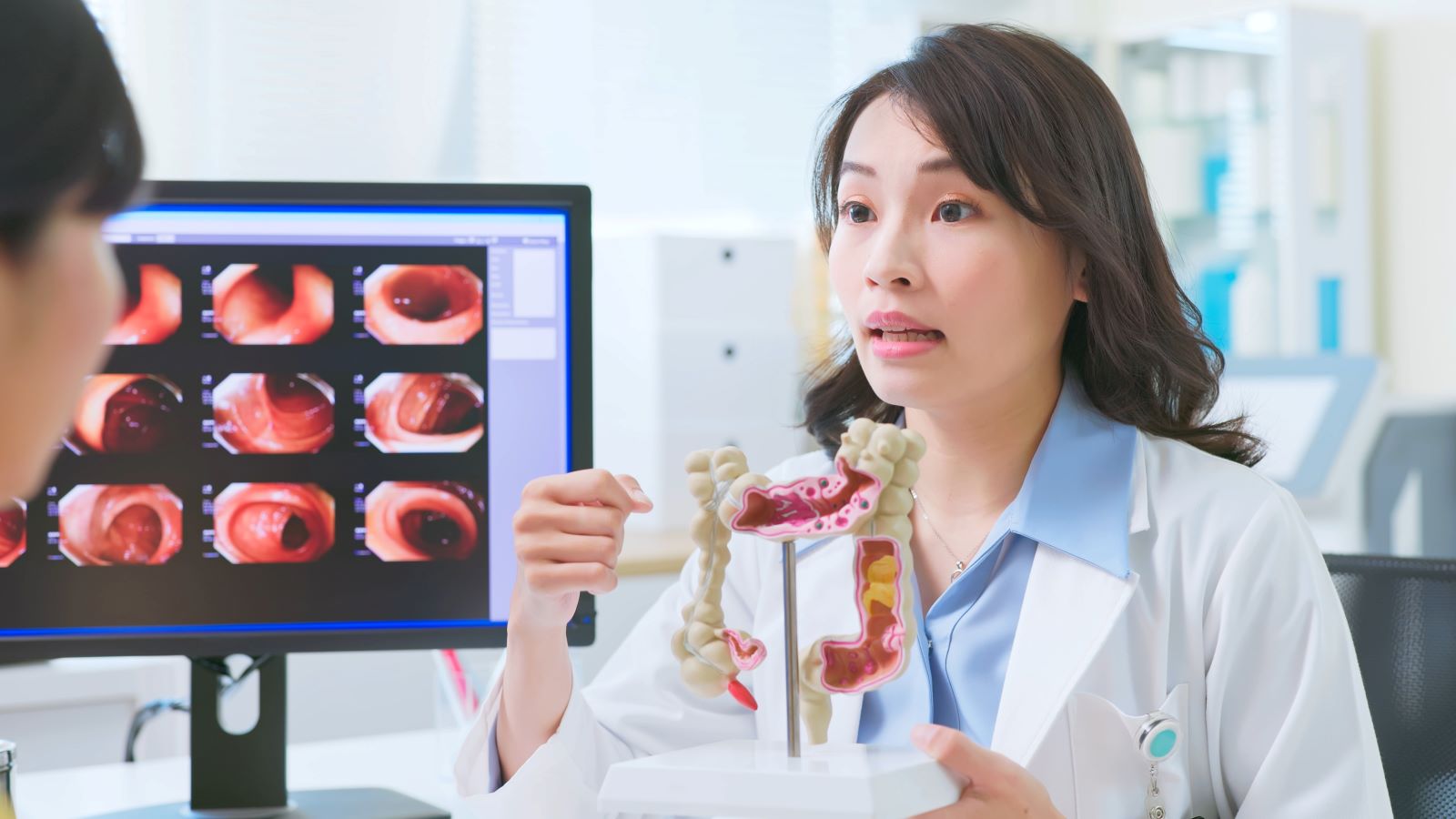<< Back
5 Early Signs of Colon Cancer You Should Know

March 31, 2025
Colon cancer is one of the most treatable cancers — if you catch it early.
But do you know what to look for?
Kayla Bassett, MD, colon and rectal surgeon at the Hartford HealthCare Digestive Health Institute, shares early symptoms, shares when to get screened and how to protect your health today.
5 early signs of colon cancer.
Colorectal cancer is the third most common cancer in both men and women nationwide — but it’s not always easy to spot early. In many cases, symptoms don’t show up until the cancer has already started to spread.
Here are five common signs to watch for:
1. Rectal bleeding.
If you notice rectal bleeding with bright red or maroon blood—especially if it’s mixed into the stool—it’s important to tell your doctor right away.
“This is often overlooked, especially in younger people,” says Dr. Bassett. “While hemorrhoids are a common cause, it’s critical to rule out colon or rectal cancer as the reason for any rectal bleeding.”
2. Changes in bowel habits.
Pencil-thin stools, new constipation or diarrhea can be concerning—especially if there haven’t been any recent illnesses or changes to your diet.
> Related: 4 Tips for Colonoscopy Prep
3. Unexplained weight loss.
Losing weight without a clear reason is worth paying attention to. Unexplained weight loss can sometimes point to an underlying health issue, including colon cancer, so it’s important to bring this up with your doctor.
4. Abdominal pain.
If you’re consistently experiencing abdominal pain, discomfort or bloating after eating, it could signal a deeper issue that needs to be checked out by your medical team.
5. Fatigue or shortness of breath caused by iron deficiency anemia.
Iron deficiency anemia is a common symptom of colorectal cancer. If you’re feeling unusually tired or short of breath, especially if it’s affecting your daily life, share this with your healthcare provider.
Are you at increased risk for colon cancer?
While the risk of colon cancer increases with age, it’s showing up more often in younger patients, too.
“Having a family history of colon cancer increases your risk,” says Dr. Bassett. “That’s why we recommend patients with a first-degree relative who had colon or rectal cancer start screenings earlier and have colonoscopies more often than the general population.”
Book your screening today.
If you don’t have a family history, your first colon cancer screening should be at age 45.
“While there are some alternative screening methods, colonoscopy remains the gold standard to detect and prevent colon cancer,” says Dr. Bassett.
Whatever your age, don’t ignore concerning symptoms — especially rectal bleeding. “Your doctor can arrange an earlier screening and evaluation to figure out what’s going on,” adds Dr. Bassett.
> Related: Are These 5 Myths Keeping You From a Colonoscopy?
Early detection can save your life.
Catching colon cancer early often means you can treat it with surgery alone — and no chemotherapy.
“If we find precancerous polyps during a colonoscopy, we can remove them even before they ever turn into cancer,” says Dr. Bassett. “Stay on top of your screenings and reach out to your doctor if something doesn’t feel right.”